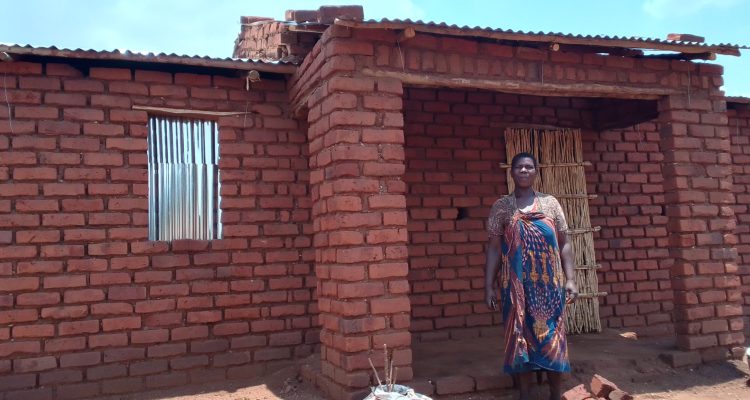
Beneficiaries of the Social Cash Transfer Programme in Balaka district have commended the initiative for aiding them to graduate from the cycle of poverty, saying they are now on the path to financial independence.
One of the beneficiaries of SCTP in the district, 45-year-old Melesiya Elias, from Ndoya village, Traditional Authority Nsamala, recalls that lack of decent housing was her greatest challenge. She told Malawi24 that through the programme, she has finally managed to build a house for her family, apart from venturing into livestock production.
She said: “When I joined the programme in 2022, I had a tiny grass-thatched mud house, and feeding my family was an uphill task,” narrated Elias.
She added: “I am now living a comfortable life free from stress,” the mother of 6 children emphatically said.
She commends the programme for helping her graduate from abject poverty.
Concurring with Elias is Jinny Elias from the same area, who has been using funds from the SCTP to pay school funds and buy uniforms for her children who are learning at the nearest Kapalamula primary school.
She further disclosed that she has also managed to build a three-bedroom decent brick house, which is now awaiting to be roofed with iron sheets.
Social welfare assistant Robert Kalimwayi said the programme has benefitted 10,700 households in the district.
Kalimwayi said that since the inception of the programme in 2014, the livelihoods of beneficiaries have significantly improved.
“The programme has lived up to our expectations. Previously, we had numerous cases to do with malnutrition among the beneficiaries, but now, issues of malnutrition are a song of the past,” said Kalimwayi.
He added: “Some now have good shelter, and others can send their children to school.”
The SCTP is an unconditional cash transfer programme targeting ultra-poor and labour-constrained households. In Balaka, the households receive a bi-monthly cash transfer to help them meet their necessities.
According to Kalimwayi, a single-member household receives K8,000, a two-member household receives K10,500, and a three-member household receives K11,500, while a four-member household gets K12,500
The Government of Malawi is also implementing the programme in all 28 districts across the country with financial support from a multi-donor trust fund comprised of, among others, the World Bank, the Government of Ireland, the European Union and the Government of the Federal Republic of Germany with technical expertise from UNICEF.














